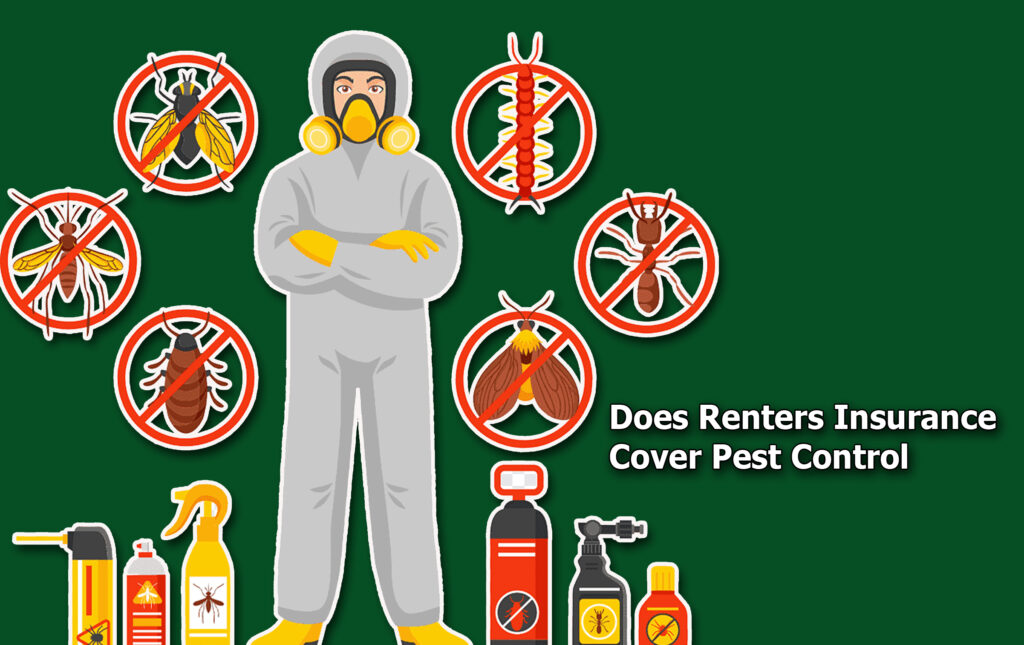Pests like cockroaches, bed bugs, and rodents can be a nightmare for renters. But who pays to get rid of them? Does your renters insurance cover pest control?

Many renters aren’t sure what their insurance policy covers when it comes to pests. This uncertainty can lead to unexpected expenses and stress.
However, as a renter, it’s important to understand what your insurance policy covers and what’s excluded.
Pest control can be a significant cost, and knowing who’s responsible can help you plan and budget.
Hence, in this article, we’ll explore whether renters insurance covers pest control and when you might be responsible for pest control.
What Renters Insurance Covers
Renters insurance is designed to protect your personal belongings in case of events like fire, theft, vandalism, or certain types of water damage. It usually includes three main types of protection:
- Personal property coverage.
- Liability coverage
- Loss of use
However, most renters insurance policies do not cover pest control. That means if your apartment gets infested with bed bugs or cockroaches, the cost of getting rid of them is usually not included.
Why Doesn’t Renters Insurance Cover Pests?
Insurance companies consider pest problems to be a result of poor maintenance rather than a sudden, unexpected event.
Just like they don’t pay to fix mold caused by long-term leaks, they usually don’t pay for pest infestations. In short, pests are seen as a preventable issue, not a disaster.
When Could Pest Damage Be Covered?
While pest removal itself isn’t usually covered, there are a few exceptions where renters insurance might help:
- Damage to personal property: If pests cause unexpected damage to your belongings; for example, rodents chew through your expensive electronics, your insurer might cover the loss, depending on the policy.
- Temporary relocation: If the infestation is so severe that your rental becomes uninhabitable, your policy’s loss of use section might help with temporary living expenses. But this is rare and only applies in serious situations.
It’s always best to check your policy or ask your insurance provider to be sure.
Who Is Responsible for Pest Control?
This depends on your lease and local laws. In many cases:
- Landlords are responsible for keeping the property habitable, which often includes addressing pest problems, especially if they existed before you moved in.
- Tenants may be responsible if their actions caused the infestation, like not keeping the space clean or bringing in bed bugs through used furniture.
Always review your lease agreement and talk to your landlord if you spot pests.
What You Can Do Instead
Even though renters insurance won’t likely help with pest control, you can still take steps to protect yourself:
- Report issues early to your landlord or property manager.
- Document the problem with photos or videos.
- Keep your space clean to avoid attracting pests.
- Consider paying for pest control if it’s not your landlord’s responsibility—but try negotiating first.
Some pest control companies also offer affordable treatment plans for tenants, especially in apartment buildings.
Final Thought
Renters insurance is a great way to protect your stuff, but it usually doesn’t help with pest control. That responsibility often falls on the landlord or the tenant, depending on the situation.
If you’re dealing with pests, don’t wait,act fast, talk to your landlord, and review your lease. And if you’re not sure what your renters insurance covers, reach out to your provider for clarity. It’s always better to be informed than caught off guard.



